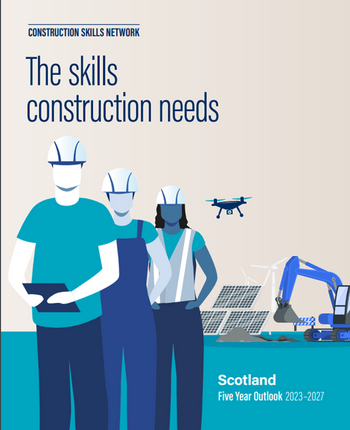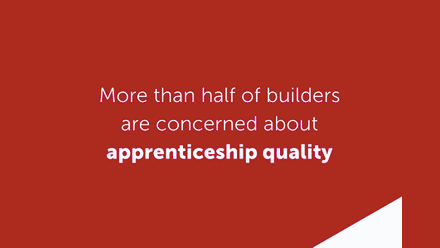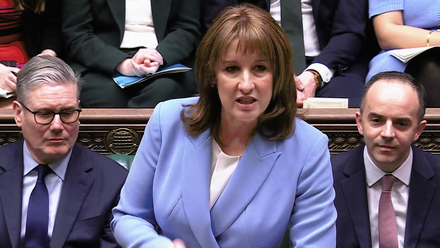As the end of the year approaches, we typically cast our minds towards what the next year will bring. I know our members are frequently evaluating the objectives and goals for their own business: whatever its size or scope. It is wise to get to grips with the wider environment impacting the construction industry. For our part, it is essential that the FMB is plugged in to receive the latest forecasts for our industry and then share these with members.
I recently attended two briefing sessions where data and forecasts for Scotland’s construction industry were shared and discussed.
Outlook for Scotland’s construction industry

Now the full CITB’s Construction Skills Network (CSN) forecast for 2024 -2028 won’t be published until January: so I can only share some parts of it now.
On labour demand:
- For all roles within the construction industry, including the skilled trades, thousands of extra workers will be needed to meet existing demand;
- Job vacancies in construction will remain high, and will be higher than the pre-covid levels in 2019; and
- Between 2024-2028, positive growth is forecast for both housing and non-housing repair, maintenance and improvement works (RMI works).
On this last point, all RMI works equates to around 1/3 of the Scottish construction industry’s total economic output. The majority of FMB members principally deliver RMI works (such as extensions, refurbishment or renovations) to existing homes and buildings. So there is good news in this forecast; albeit the current drop in new build private housing, driven by high interest rates and mortgage availability, isn’t expected to bounce back until well into 2024, or later. However, as there is still a long term need to build more homes to meet demand Experian (who provide this forecast for the CITB) expect new build private housing to bounce back.
The CSN forecast acknowledges the wider economic environment: including more fragile consumer confidence and the mentions in the media over many months of the cost-of-living crisis. Both the CSN and Skills Development Scotland’s own skills assessment for construction, note the potential demand for works concerning retrofit and heat decarbonisation.

Representing your interests
The FMB has been at the forefront on advocating for a national retrofit strategy. I’ve met various policy makers and government ministers in Scotland to explain how local building companies will be essential if the government is to meet its own target of net-zero by 2045.
There needs to be consumer demand for ‘green’ retrofit works though. Now the Scottish Government has just published a consultation on proposals to make new laws around the energy efficiency of our homes and buildings. So I need to engage with members and the government on this and see if the policy sticks and carrots proposed will drive demand.
Expansion and replacement
But back to skills and labour. With around 55,000 workers today, the skilled trades are the largest occupational employment grouping in Scotland’s construction industry. This number is expected to grow between 2023-2026. However it is replacement demand much more so than expansion demand that will be driving the growth here. With an ageing workforce and the chronic challenges the industry has with retaining workers - this isn’t surprising. This is not to say that a rise in client demand for construction works won’t be responsible for labour and skills demand too; but for the near future at least, more employers in the industry will be working to replace lost labour than expand their workforce.
Policymaking for prosperity
So can there be a bottom line on what the forecasted future holds for the construction industry in Scotland? Well in short no. However it is clear both from what I can share in these forecasts and from my conversations with members, that whilst no one is expecting a universal and steep surge in demand for more building and construction works in 2024: there will be more demand for RMI works if others can get the policy mix right.







